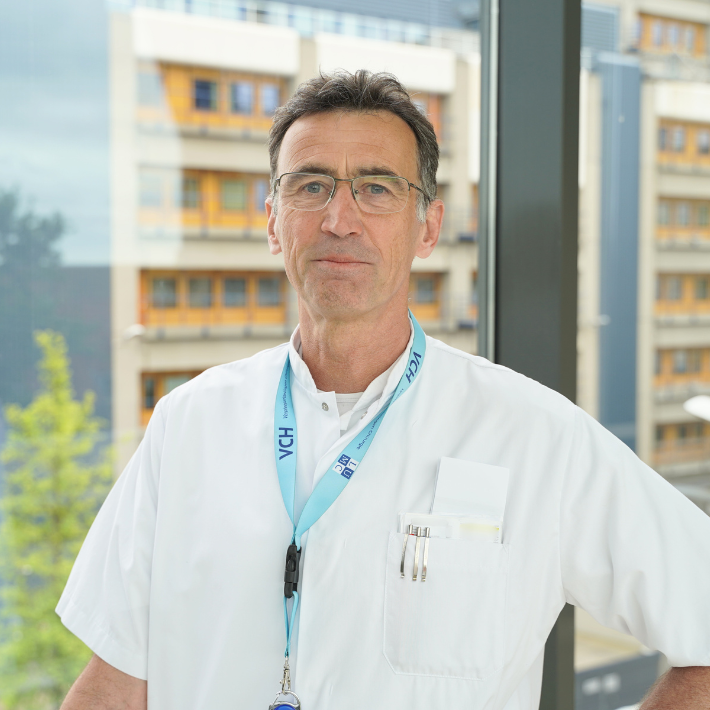Treating less, leads to better oncology care
Professor Gerrit Jan Liefers.
&width=710&height=710)
As a brand new professor, Liefers wants to improve care and education by looking at which treatments really help. With research primarily on older patients, he is finding out what does and does not make a difference in cancer care.
Liefers: "With an increasing demand for care and a shrinking workforce, we need to carefully examine which cancer care provides health benefits and where there is a danger of a therapeutic illusion: the overconfidence of doctors and patients in medical treatments. We have added more and more treatments in recent years to reduce the risk of cancer recurrence, such as radiation and surgery. Or surgery AND chemotherapy. But this sometimes only reduces the chance of the cancer recurring by 2 to 3%. And then there are all the side effects. The health gain is thus so small that it is rather harmful."
Omitting radiation
Liefers himself, with colleagues around the country, is leading a study of omitting radiation in older women with breast cancer in whom the risk of cancer recurrence is very small, and as a result of which he believes there is very little benefit. In this study, he compares an irradiated group with a non-irradiated group. He then looks at in whom the cancer returns. "That chance may be slightly higher for the non-irradiated group, but because these 1,200 women will not have side effects from radiation, that's still a gain. In doing so, we offer them a greater quality of life and, in the slipstream, we also prevent higher healthcare costs. I think with that we are providing better care, for the individual and in general," he says.
Personalized approach
Liefers' ultimate goal is to prevent overtreatment. According to the physician, that requires a more personalized approach. But how do you tell a patient that doing nothing is sometimes better than treating? Liefers: "We always explain to someone the pros and cons. Then we let the patient make a choice. If you've explained everything well, they often choose to omit a certain additional treatment. We also take this message to patient organizations. They generally respond very well to it."
In the coming years, he will focus his research on personalizing cancer treatments for elderly patients, in order to contribute to the "oncology care of tomorrow. Liefers: "I am looking forward to conducting this research. Together with colleagues from medical oncology, radiotherapy, pathology and many others inside and outside LUMC. Because in essence, oncological care is multidisciplinary."
Curriculum vitae
Liefers completed his studies in Medicine at Leiden University in 1994. After research in Cleveland, Oslo and Tokyo, among other places, he obtained his PhD on the molecular biology of colon cancer. After training as a surgeon at the former Red Cross Hospital in The Hague and the LUMC, he was a KWF Fellow at the Antoni van Leeuwenhoek Hospital. Liefers has been a staff member in the Department of Surgery at LUMC since 2006 and sub-department head of the Department of Gastroenterological, Endocrine and Oncological Surgery (GEO) since 2015. He has also served as a reserve, Lieutenant Colonel in the Dutch Army since 2023.
Liefers' inaugural appointment will be on Sept. 18, 2026.